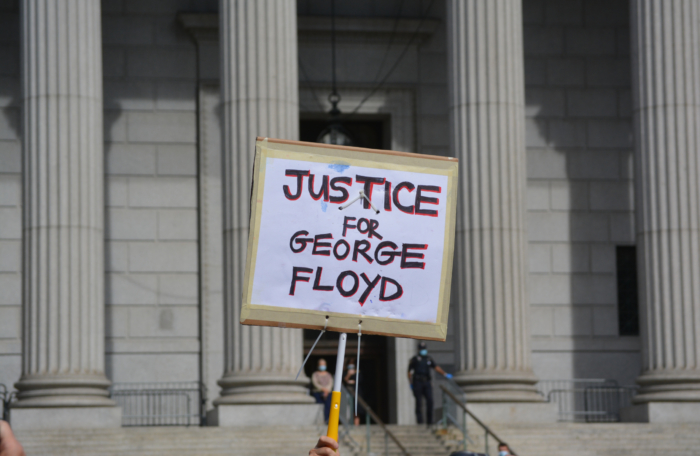Police accountability starts with fixing ‘qualified immunity’
Sometimes, answers to local municipal issues are found not in our communities, but in bad law handed down in Washington, D.C. When it comes to police accountability, many improvements can and must be made at the state and local levels. But the first and most obvious step is to correct a U.S. Supreme Court decision that granted officers broad immunity from civil lawsuits.
New Hampshire’s congressional delegation can play a vital role in this necessary effort by supporting reform of court-invented ‘qualified immunity’ for government officials who violate Americans’ civil rights.
Police officers are protected from federal civil rights lawsuits by a 1982 U.S. Supreme Court case, Harlow v. Fitzgerald. Under the concept of qualified immunity introduced in that case, government officials are immune to prosecution for civil rights violations unless a specific, nearly identical previous case existed to show that the exact conduct in question was established as a civil rights violation.
As a 2019 case put it:
A defendant violates an individual’s clearly established rights only when “‘the state of the law’ at the time of an incident provided ‘fair warning’” to the defendant that his or her conduct was unconstitutional. Tolan v. Cotton, 572 U.S. 650, 656 (2014) (quoting Hope v. Pelzer, 536 U.S. 730, 741 (2002)). ‘We do not require a case directly on point, but existing precedent must have placed the statutory or constitutional question beyond debate.’
In the case quoted above, Jessop v. City of Fresno, police officers allegedly stole more than $100,000 in cash plus $125,000 in rare coins during a property search. The court ruled that the officers were not subject to a federal civil rights lawsuit because there was no previous case that would have signaled to them that government agents stealing money during a search violated the Fourth Amendment, which protects against “unreasonable searches and seizures.”
“At the time of the incident, there was no clearly established law holding that officers violate the Fourth or Fourteenth Amendment when they steal property seized pursuant to a warrant. For that reason, the City Officers are entitled to qualified immunity,” the court ruled.
In effect, the court held that these officers couldn’t possibly know that stealing money during a search is an unreasonable seizure of property because no court had ever ruled that it was.
In another case being brought by the Institute for Justice, police who were searching for man launched round after round of tear gas into his girlfriend’s home, destroying it. They did this after she gave them the house keys and told them they could search the home. They opted to wreck the home rather than use the keys and walk in. (The wanted party was not inside.)
The homeowner sued, but the court held that the police had qualified immunity because there was no previous case with similar enough circumstances to inform the officers that demolishing a home they’d been invited into might be a civil rights violation.
Qualified immunity does not determine that a citizen’s rights were not violated. Instead, it blocks civil rights lawsuits against government officials from even proceeding. If there’s no nearly identical previous case, then the officer is presumed immune.
The effect of this court precedent is to protect bad police officers.
“The U.S. high court’s continual refinement of an obscure legal doctrine has made it harder to hold police accountable when accused of using excessive force,” a recent Reuters investigation of qualified immunity concluded.
Fixing this mistake will take either a U.S. Supreme Court reversal or an act of Congress. New Hampshire’s congressional delegation could take the first step in making law enforcement officers more accountable for civil rights violations by pushing for legislation to correct this court overreach.




Another blatant example that the legal system we live under is not about justice (or even common sense). This is absolutely infuriating. Who were those “justices” and what substance were they under the influence of? Unbelievable…. And who were those police officers who got off scott-free and where are they now? I hope there were some natural consequences that followed them the rest of their lives. They not only harmed the individuals involved; they helped to set up precedents that still haunt us to this day. Shame.
Complaining doesn’t accomplish anything, it just gives the government more power. Organize and become a voting block that will make the politicians “sit up and take notice”, or just be quiet !
Why can’t NH laws give people more rights to sue (in NH courts) in these circumstances than federal? I wouldn’t bother waiting for Congress to do anything useful.